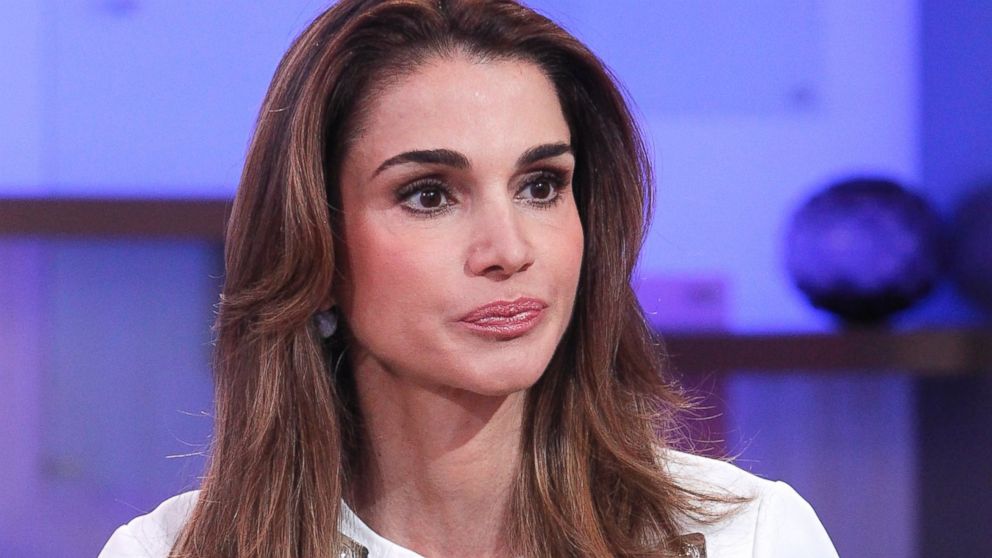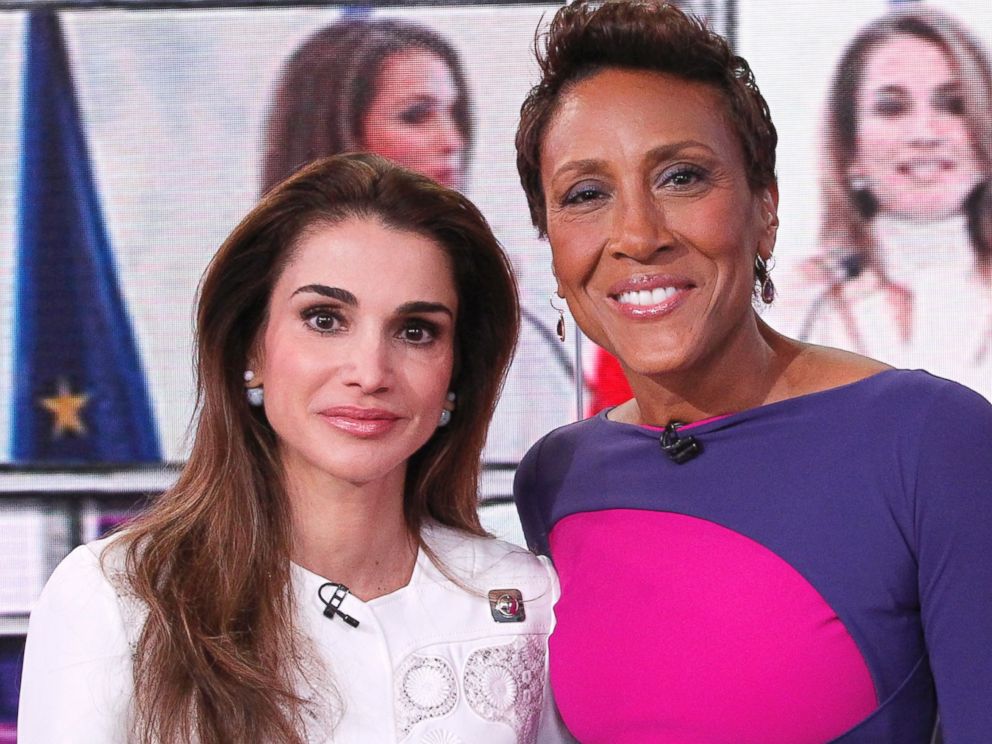Queen Rania of Jordan on Syrian Refugee Crisis: ‘Put Yourself in Their Shoes’
Her Majesty says Jordan needs other countries' help with the flood of refugees.

— -- With the world facing a refugee crisis as millions of people flee war-torn Syria, the Queen of Jordan, on Syria’s border, says people have to do more than just “click ‘like’” on social media if they want to help -- or they risk seeing their values “start to erode.”
“When people look at some of these, the crisis that we see like the refugees, and they ask, ‘Well, what can we do?’ but then you have to act,” Queen Rania of Jordan said in an interview taped last week that aired today on “Good Morning America.”
“Acting doesn't just mean you just click ‘like’ and move on to the next post because, you know, you assume that somebody else will do something about it,” she said. “You are that somebody else. You've got to act on your values, because if you don't, they just slip away.”
Queen Rania's country of Jordan has been hit particularly hard by the civil war in Syria, watching a flood of 600,000 refugees come into Jordan from the neighboring country during the most recent wave of the crisis.
Queen Rania’s husband, King Abdullah of Jordan, spoke out about the crisis at the United Nations’ gathering of world leaders last month.
On Tuesday, 19 countries announced they are donating $1.8 billion to the top U.N. aid organizations to help alleviate the suffering of refugees in places like Jordan.
“We do need assistance from the international community. Jordan is a small country that's quite resource poor, so it's really been a major issue for us,” Queen Rania said on “GMA.” “The Syrian refugee crisis is a true humanitarian catastrophe.
“I think people don't realize the magnitude of the numbers,” she said. “250,000 Syrians have lost their lives as a result of this conflict. Half of the population of Syria have left their homes; seven million of them are internally displaced and four million have become refugees.”

The refugee crisis has also become a hot topic on the presidential campaign trail in the United States, with the leading Republican contender, Donald Trump, saying of the refugees that, if he wins, “they’re going back.”
President Obama directed his administration early last month to take in at least 10,000 displaced Syrians over the course of the next year. The United States has admitted 1,500 Syrian refugees since the start of the four-year conflict and hopes to get to 1,800 by the end of the fiscal year.
“I think we all have to work together to try to find a cohesive and comprehensive and unified approach to this,” Queen Rania said of the Obama administration’s offer, adding that the United States or Europe should not “shoulder the burden” alone.
Her Majesty, a 45-year-old mother-of-four, urged citizens, politicians and world leaders to take a humanitarian approach with the refugees.
“I think the first thing we need to do is really put our self in their shoes,” she said. “These people are not leaving by choice and that's the difference between migrants and refugees.
“You know, migrants choose to go to another country because they want a better job or they want education, but refugees are running for their lives,” she added. “When I look at a country like the United States, it baffles me that people don't understand it because this a country where immigrants have done so much, and can you imagine what the United States would've been like without the contribution of, the valuable contribution, of so many immigrants?”
The queen said she believes some of the failure to act quickly on the refugee crisis might stem from the fact that the majority of the refugees are Arabs and Muslims.
“There’s been a stereotype now that’s been festering for so many years because extremists have really dominated the agenda and have, I think, caused a lot of fear and mistrust and intolerance toward Arabs and Muslims,” Queen Rania said.
She met recently with a Muslim-American teenager Ahmed Mohamed, who made headlines in the United States last month when he was arrested at his Texas high school after bringing a homemade clock to school and having it mistaken for a bomb.
Attention focused on whether Mohamed, who is now being home-schooled, was deemed suspicious and treated differently because of his religion.
“I think it's kind of to the fact that some of these stereotypes can sneak out our subconscious without us knowing and make us make grave misjudgments of people,” Queen Rania said. “And sometimes cause them a great deal of unfairness and injustice. “
ABC News' Justin Fishel contributed to this report.




